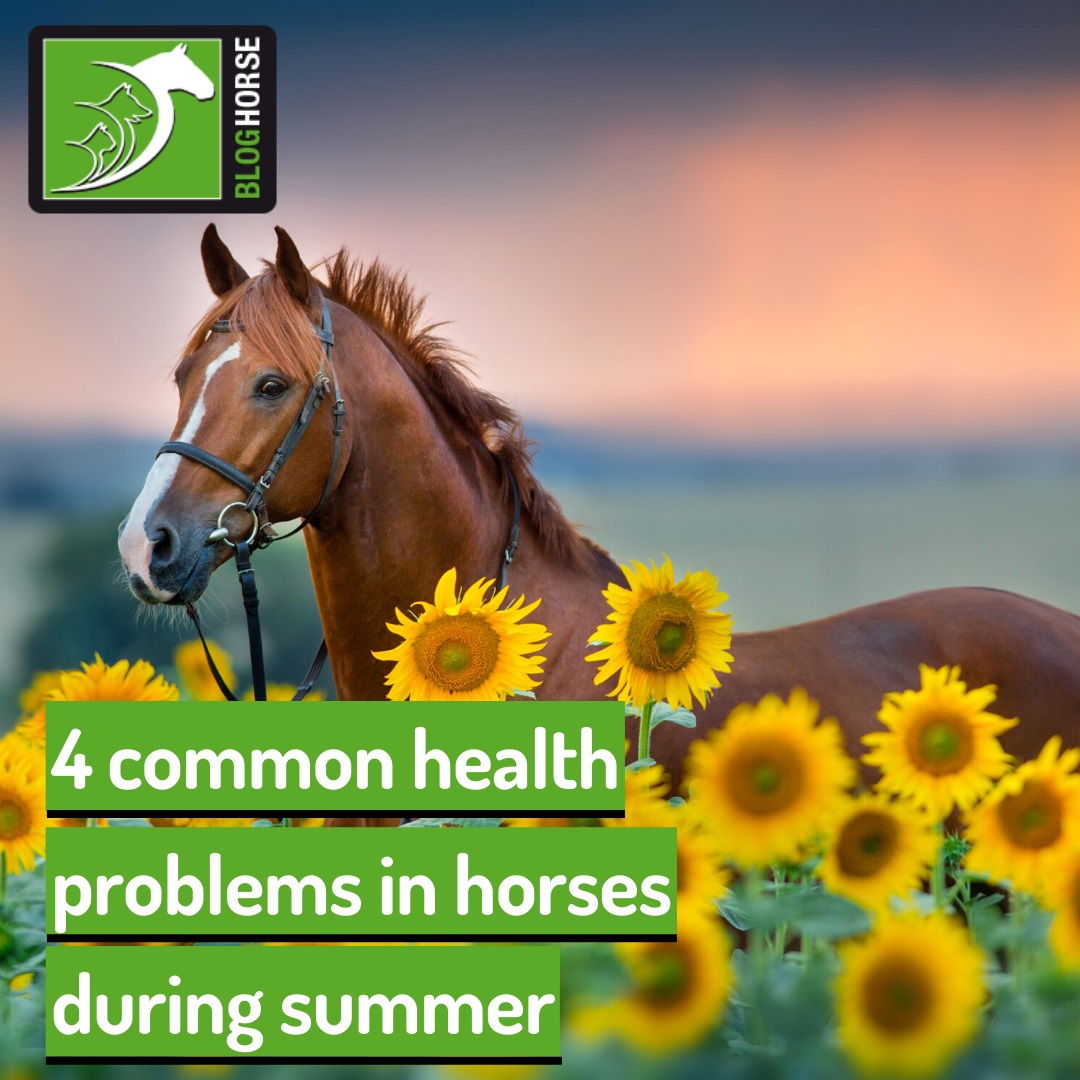
4 common health problems in horses during summer

Summer provides lots of opportunities to enjoy the warm weather with your horse, but it can also bring some health issues.
Here are some of the most common problems that horse owners might encounter this season and what to do when faced with them.
Dehydration
Dehydration can happen when a horse loses more water (for example, through sweat) than he or she takes in. This is why it's so important to have fresh water permanently available to your horse, especially during warm days.
Signs of dehydration include:
- Dark urine/reduced urination;
- Lethargy;
- Dull eyes;
- Dry mouth and skin.
But sweat is not composed of water alone, so electrolyte supplementation may be necessary for some horses, especially if they exercise a lot.
Heatstroke
Heatstroke is caused by an excessive increase in a horse's body temperature and it can be a life-threatening condition.
It often happens when exercising in a hot environment, as it's harder for horses to lose the excess heat, especially if they are dehydrated.
Signs include:
- Panting;
- Nostril flaring;
- Increased rectal temperature;
- Irregular heartbeat;
- Reduced performance and delayed recovery after exercise;
- Muscle spasms.
Keep in mind that heat exhaustion is a medical emergency! Contact your vet immediately if your horse is showing any of the signs described! Until help arrives, please move your horse to a shaded area and start to cool them by applying tepid water to their skin.
Sunburn
Sun exposure can be as damaging to horses as it is to us, with areas of pink skin and little or no hair being the most vulnerable to sunburn, such as the skin around the muzzle. Sunburnt skin typically looks red, swollen and can be painful.
You can prevent sunburn by protecting vulnerable areas of skin with sun cream or sun-blocking gear, such as a UV filtering face mask.
If your horse gets sunburnt, it's essential to keep him or her in the shade and apply a soothing cream to the affected area to help the skin heal. Speak to your vet if the skin doesn't improve within a few days or if you're concerned about the severity of the burn.
Sweet itch
The saliva of the midge (Culicoides) and the black fly (Simulium) can cause an allergic reaction in some horses, resulting in a condition known as sweet itch (or Equine Insect Bite Hypersensitivity).
This illness usually affects the base of the mane, base of the tail and the face, but also the back, belly and rump. Signs include:
- Intense itchiness that can lead the horse to scratch on posts and trees;
- Tail swishing to keep the flies away;
- Excessive grooming from other horses;
- Scratching that can result in hair loss as well as skin inflammation, potentially leading to infection and thickening of the skin;
- Lethargy or becoming agitated/restless.
Regarding prevention, keeping your horses inside during the day and out at night and using fly sheets plus face masks can reduce the exposure to midges. Many fly repellents can be used to deter flies from biting, and removing droppings frequently from the stable will help avoid attracting flies.
Though horses often find the hot weather uncomfortable, there is plenty we can do to reduce the risk of these heat-related problems. Don't hesitate to contact your vet if you're struggling to keep your animals safe this summer.
Would you like to know more about horses? Check our Equine Courses:
Equine courses
Published: 09 Jun 2022
Read the previous article: Protect your dog from the sun

